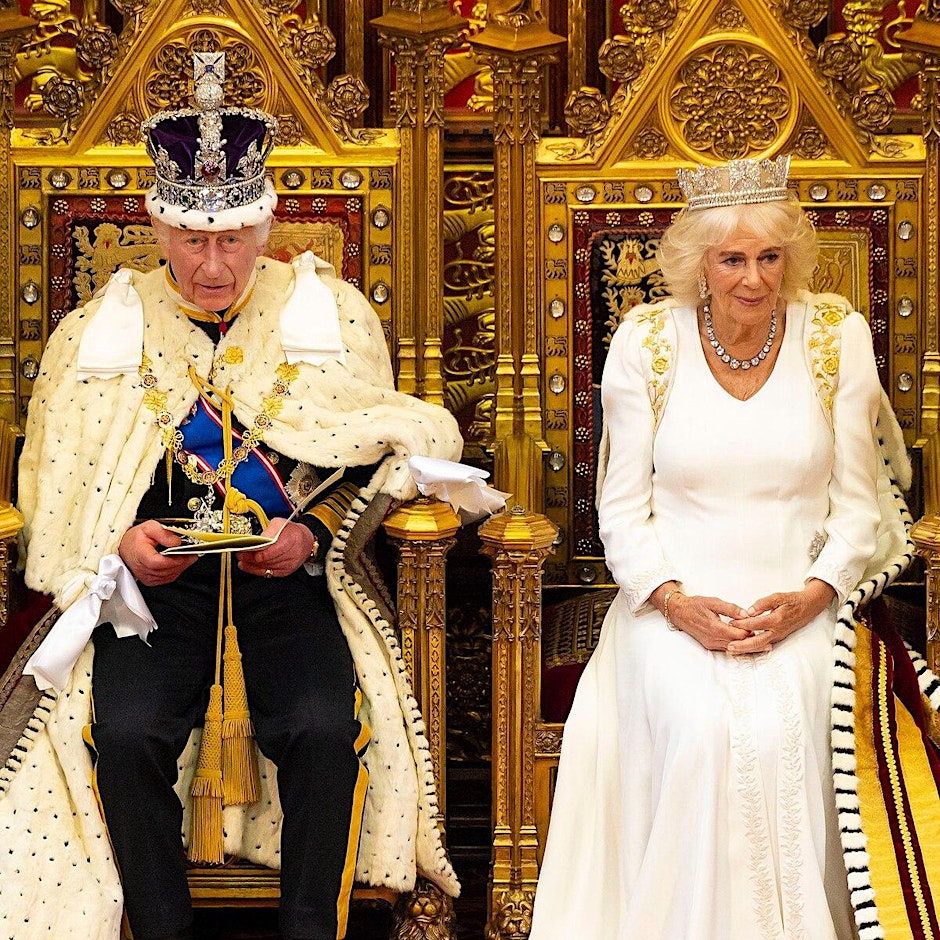
- This event has passed.
Why Does Democratic Britain Keep Its Monarchy?
20th August 2025: 4:00 pm - 5:00 pm BST

These online panel discussions will take place at 4pm on a Wednesday once a month, but the topics are decided according to world events and are announced at the previous month’s event. Recordings are available on YouTube via the Global Georgetown channel: https://www.youtube.com/@GlobalGeorgetown/videos.
In the 17th century, Britain abolished its monarchy due to civil war and political unrest. It was subsequently restored and eventually became subject to constitutional constraints. Today, a majority in democratic Britain views it as a symbolic institution that “reigns, but does not rule,” a unifying force of national identity and tradition. Yet a growing number, especially in younger generations, view it as an outdated and expensive institution that is antithetical to democracy. What is the future of the monarchy, and why does Britain keep it? How open is the dialogue surrounding it?
This discussion is part of the ongoing event series Free Speech at the Crossroads: International Dialogues. These events are sponsored by the Free Speech Project (Georgetown University) and the Future of the Humanities Project (Georgetown University, the Las Casas Institute and Campion Hall, Oxford), hosted by Georgetown University on Zoom.
Online. Free and open to all. Registration required.
John Battle served as a Labour Party politician in Parliament for Leeds West from 1987 to 2010, and was a Cabinet minister in the government of Prime Minister Tony Blair. He chairs the justice and peace commission of the Diocese of Leeds. Battle was Minister of State for Trade and Industry from 1997 to 1999, and Minister of State at the Foreign and Commonwealth Office from 1999 to 2001. He is a fellow at Leeds Trinity University and Blackfriars Hall, University of Oxford.
Laura Beers, a professor of history at American University, focuses on modern Britain. Her most recent book, “Orwell’s Ghosts: Wisdom and Warnings for the Twenty-First Century,” explores the relevance of George Orwell’s writing for understanding modern politics. Her book “Red Ellen: The Life of Ellen Wilkinson, Socialist, Feminist, Internationalist,” a history of Britain’s second female cabinet minister, won the 2017 Stansky award for best book in the field of modern British history.
Elan Closs Stephens serves as the electoral commissioner for Wales. She is an emeritus professor of communications and creative industries and pro-chancellor at Aberystwyth University. With extensive experience as a chair and non-executive specializing in broadcasting, cultural policy, and governance of public bodies, she has been a member of the BBC board for the past 13 years, where she chaired its commercial holdings. She previously held the role of acting chair of the BBC.
Panelist #4 – TBD
Michael Scott (moderator), senior dean and fellow of Blackfriars Hall, Oxford, is college adviser for postgraduate students, and a member of the Las Casas Institute. He also serves as senior adviser to the president of Georgetown University. Scott previously was the pro-vice-chancellor at De Montfort University and founding vice-chancellor of Wrexham Glyndwr University.
Sanford J. Ungar (moderator), president emeritus of Goucher College, is director of the Free Speech Project at Georgetown University, which documents challenges to free expression in American education, government, and civil society. Director of the Voice of America under President Bill Clinton, he was also dean of the American University School of Communication and is a former co-host of “All Things Considered” on NPR.
Contact:
Las Casas Institute with Georgetown University
lascasas@bfriars.ox.ac.uk